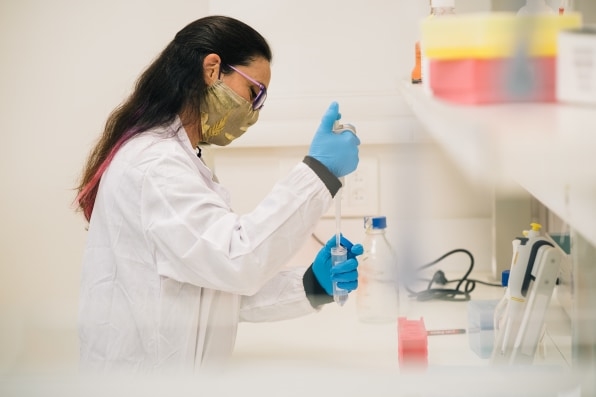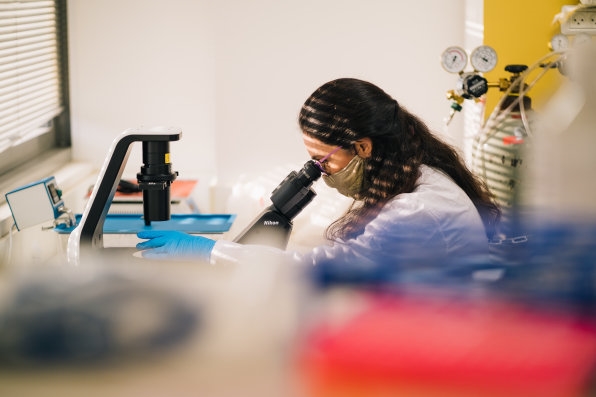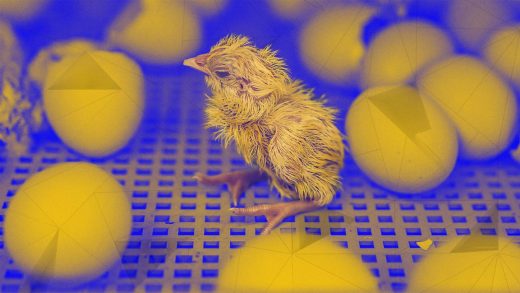This genetic tech could help save billions of baby chickens from unnecessary death
It’s a particularly gruesome part of the chicken industry: When chicks are born at hatcheries, the males are immediately thrown in grinders and “live-shredded” to death, or killed by suffocation or gassing. Since male chicks will never grow up to lay eggs, and because roosters are too small to be used for meat, the industry has no use for them. Billions are killed each year, after hatcheries have invested the money and energy needed to incubate each egg.

That’s changing as new technologies to identify the sex of chicken eggs come to market, making it possible to literally count your chickens before they hatch. One solution, from a startup based in Israel, uses the gene-editing technology CRISPR to place a tiny biomarker on the male chromosome. When the egg goes through a scanner, the biomarker glows, and it’s possible to separate the egg out for uses in other industries (like pharmaceuticals, potentially, or cosmetics).
The startup, called EggXYt, was cofounded by neuroscientist and molecular biologist Dani Offen, who learned about the challenge of chick “culling” over an egg breakfast with a friend. Offen “was astounded by the animal welfare implications and the sheer amount of waste in an industry whose end product so many consumers enjoy,” says Yehuda Elram, cofounder and CEO of EggXYt. At the same time, Elram says, “he was aware of the revolutionary developments happening in molecular biology and thought, why not put some sort of marker just on the male chicks, so that we could weed them out before incubation and prevent the 4 billion unnecessary deaths that happen every year from the current system?”

At a hatchery, the company’s scanner can automatically identify male eggs, redirecting them to be shipped elsewhere, while female eggs are sent on for incubation. (Since the biomarker is on the male chromosome, the female chicks will be genetically no different than they were before.) Some other startups are working on technology that can identify the sex of an egg slightly later; one solution, now used in eggs marketed as Respeggt in Europe, takes a drop of liquid from an egg and tests it for hormones after eight or nine days of incubation. But EggXYt’s process can happen before incubation, saving cost. “These cost savings are particularly important in an industry with razor-thin margins that is constantly at the mercy of fluctuating input and output prices,” Elram says. The process also doesn’t require penetrating the eggshell. “Being noninvasive is critical, because perforating the eggshell exposes the embryos inside to potentially dangerous viruses and bacteria from the external environment,” he says.
The industry is poised to change. In the U.S., an industry group called United Egg Producers pledged in 2016 that it would stop culling male chicks as soon as it was economically feasible, though it said in 2020 that a workable solution didn’t yet exist. France plans to ban the practice by 2022. Germany announced the same goal earlier this year.

EggXYt recently announced an investment from Solve Innovation Future, a philanthropic venture fund based at MIT, that will help support more R&D and commercialization of its products. The startup plans to use a SaaS or “sexing as a service” model that charges producers by the egg. “Today, roughly $1 billion is wasted every year on the unnecessary incubation of 4 billion male eggs, the manual sexing of 8 billion day-old chicks (since females must be sexed as well), capital expenditure (due to having excess incubators), and lost resale value from the non-incubated male eggs,” says Elram. The new technology saves on each of those costs as it addresses animal cruelty and the sustainability challenges of the status quo. “Universal adoption of our technology will transform the egg industry,” he says.
(12)



